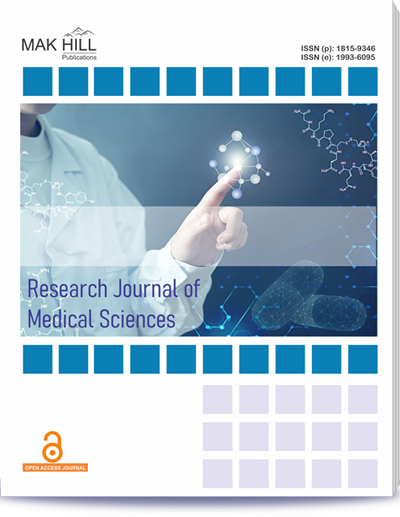
Research Journal of Medical Sciences
ISSN: Online 1993-6095ISSN: Print 1815-9346
Abstract
Psoriasis is a chronic inflammatory skin condition characterized by abnormal keratinocyte proliferation and immune dysregulation. Phototherapy, including narrowband ultraviolet B (NB‐UVB) and psoralen plus ultraviolet A (PUVA), is a widely used treatment for psoriasis. This observational cohort study aims to evaluate the long‐term effects of phototherapy on skin histopathology in patients with psoriasis. An observational cohort study was conducted involving psoriasis patients who underwent phototherapy at a teritiary care hospital. Skin biopsies were taken before treatment, immediately after completing the phototherapy regimen Histopathological changes, including epidermal thickness, inflammatory cell infiltration and keratinocyte proliferation, were evaluated. The study included 150 patients with psoriasis. Significant improvements in skin histopathology were observed immediately after phototherapy, with reductions in epidermal thickness and inflammatory cell infiltration. These improvements were maintained at 6 months but showed partial regression at 1‐year follow‐up. Long‐term phototherapy was associated with sustained histopathological benefits, although some patients experienced a recurrence of psoriatic lesions. Phototherapy is effective in inducing histopathological improvements in psoriasis, with benefits persisting up to 6 months post‐treatment. Long‐term follow‐up indicates partial regression of benefits, highlighting the need for maintenance therapy. This study underscores the importance of ongoing management in achieving sustained control of psoriasis.
How to cite this article:
Sushil Kumar Sharma, Vineet Kumar Sahu and Mansi Rathore. Long‐Term Effect of Phototherapy on Skin Histopathology in Psoriasis: An Observational Cohort Study.
DOI: https://doi.org/10.36478/10.36478/makrjms.2024.8.499.503
URL: https://www.makhillpublications.co/view-article/1815-9346/10.36478/makrjms.2024.8.499.503